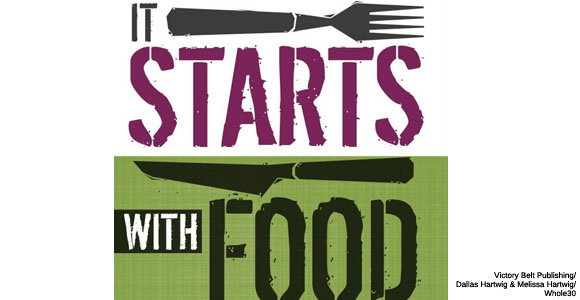A new diet that promises "amazing results" is rapidly gaining popularity across the U.S. The website for the Whole30 Diet claims its eating program "will change your life," reset your "healthy metabolism" and decrease "systemic inflammation." You are supposed to abstain from eating certain food groups and specific foods for a full 30 days and you will then magically be healed from the negative effects of your current food choices. They suggest that following this program for 30 days will help with weight loss, aches and pains, skin and digestive problems, allergies, and even infertility.
According to the website, here are the rules of the 30-day program:
1. No added sugar of any kind--natural or artificial.
2. No alcohol (not even in cooking).
3. No grains.
4. No legumes (beans, peas, lentils, peanuts, soy and anything made from soy). You are allowed to have snow peas, sugar snap peas and green beans (classified as legumes but acceptable in the plan).
5. No dairy, although clarified butter is allowed.
6. No white potatoes.
7. No foods that contain carrageenan, sulfites or MSG (monosodium glutamate).
8. No junk food, desserts or baked goods.
9. You are not allowed to weigh yourself or take any kind of body measurements while you are on this program. You are encouraged to write down your weight before starting the program and after stopping the program to find out if you lost weight.
What this program gets right is that it encourages you to eat real food--foods with few ingredients; ingredients you can actually pronounce; or no ingredients listed at all, such as whole fruits, vegetables, nuts, seeds, oils, eggs, meat and seafood.
But, there are several aspects of the Whole30 Program that are concerning to me as a registered dietitian. First of all, the rules of this program ask you to cut out entire food groups, which is unhealthy and can lead to nutrient deficiencies. The rules state you must cut out all grains, all legumes, all dairy and white potatoes. These foods provide of a lot of beneficial nutrients.
Secondly, I am always skeptical of any diet or eating program that is trying to sell something. Of course, the website does lay out the rules of the program for free access. However, in the very first paragraph on their website, it clearly states, "For in-depth information about the program and our nutritional recommendations, refer to our New York Times bestselling book, It Starts With Food." There is also a section on the website where you can purchase t-shirts and other items promoting their program. Additionally, they have a list of affiliate websites on the right-hand side of their main page, most of which sell products or services. If they're trying to sell you something--even if it's not required--that means they are looking to profit from your desire to lose weight or improve your health in some way, which is simply wrong.
Lastly, although the website claims they've had over 100,000 people finish the program with "amazing results," there are no links to any actual research or scientific studies evaluating the program. I myself have not participated in this program, and perhaps future studies will yield some evidence to this eating program's claims of results. However, until there is sound, scientific research proving results without causing harm, I cannot safely recommend the Whole30 Program at this time.
Kari Hartel, RD, LD is a Registered, Licensed Dietitian and freelance writer based out of St. Louis, MO. Kari is passionate about nutrition education and the prevention of chronic disease through a healthy diet and active lifestyle. Kari holds a Bachelor of Science in Dietetics from Southeast Missouri State University and is committed to helping people lead healthy lives. She completed a yearlong dietetic internship at OSF St. Francis Medical Center in Peoria, IL, where she worked with a multitude of clients and patients with complicated diagnoses. She planned, marketed, and implemented nutrition education programs and cooking demonstrations for the general public as well as for special populations, including patients with cancer, heart disease, diabetes, Alzheimer's disease, obesity, and school-aged children.




